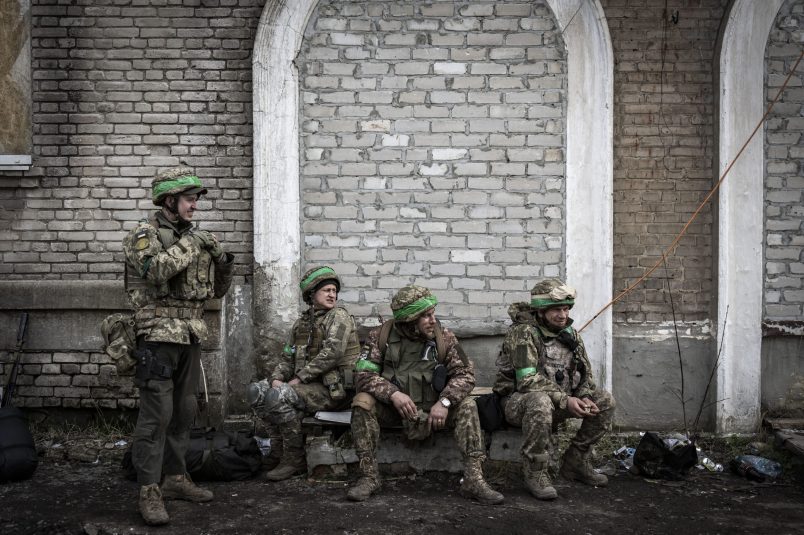Like John, I’ve also frequently found it hard to make sense of what is happening in Ukraine, especially in recent months when the conflict has shown relatively little movement in lines of control. From my understanding, the real question is what will happen in the offensive the Ukrainian army has long telegraphed starting sometime in the spring or early summer. The brutal fight over Bakhmut, from what I’ve been able to understand, has to be seen in that context.
Bakhmut has little strategic value in itself. But Ukraine has made a stand there for two reasons. First is simply one of morale and the attitudes of the countries supplying its arms. You don’t want to be seen to be surrendering territory. You want to show you’re winning rather than losing. The bigger factor has been the relative rates of attrition on both sides. Ukraine has sustained many casualties in the fight, but Russia has sustained multiples of that number. In other words, Ukraine has held the land because it believes that Russia is burning through soldiers and materiel it cannot easily replace, the absence of which will weaken it during Ukraine’s coming offensive. I don’t know what the multiple is. You hear various reports. But it’s supposed to be substantial. As John noted, we’ve heard conflicting reports about whether or how much of Bakhmut Russia has taken control of. But that’s not really why Ukraine is fighting there. They are fighting there to bleed the Russian Army.
There’s been quite a lot of debate about whether that was and is the right decision. But that’s the reasoning behind making a stand there.
For those interested in more, I’d refer you to this TPM Inside Briefing I did with Michael Kofman roughly a month ago. It’s a month old but still gives a pretty good overview of just what that battle is about and what each side is trying to achieve there.
There’s a broader point here that is worth noting. As Kofman points out, we’re likely to get to a point, perhaps by the end of this year, where you really do have a stalemate, where neither side has the capacity to advance its objectives more by force of arms. At that point you likely will have negotiations. We don’t know when that will happen. And we don’t know that it will happen. Ukraine might roll up the rest of the Russian post-2014 gains outside Crimea. But if the war does get to that point of stalemate, we probably won’t need to tell the Ukrainians its time to attempt some kind of negotiated settlement.
It’s equally important to address the other side of this equation. It’s been a principle of Ukraine’s supporters in Europe and North America that we won’t make decisions about Ukraine without Ukraine. That’s the right principle. We also sometimes say it’s up to Ukraine how long they want to fight. That’s also true. But what is a given in that statement — and sometimes ignored by interested parties — is that it’s up to each country to decide how long to fund and arm Ukraine. As Ukraine’s primary arms supplier, that’s up to the United States. If Ukraine said, we want to invade Russian territory to pressure the Russians to give back Crimea, I’m pretty certain we’d say no to that. Not with our weapons.
Each side has its own interests and its own level of risk aversion. They mostly overlap. They could reach a point when they don’t overlap. We’re not really even near that point. The situation on the ground is difficult to understand — because those of us here aren’t there, most of us lack technical military knowledge and the players have strong interests in giving us incomplete pictures of what’s happening. But the actions of the key players — Russia, the U.S., Ukraine et al. — give me little reason to believe the war has reached an actual stalemate. Quite the contrary actually. The party with a strong interest in an imposed peace seems to be Russia, because that is the party that is slowly losing ground and which would benefit from locking in its current gains.






